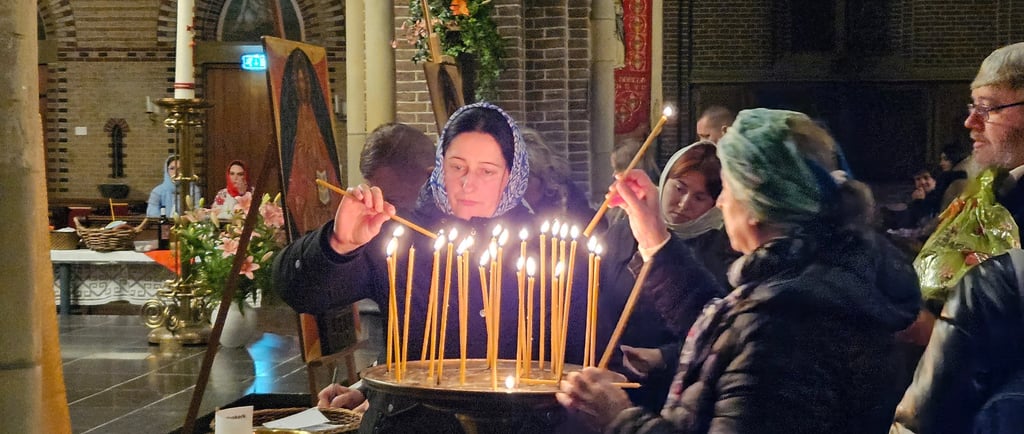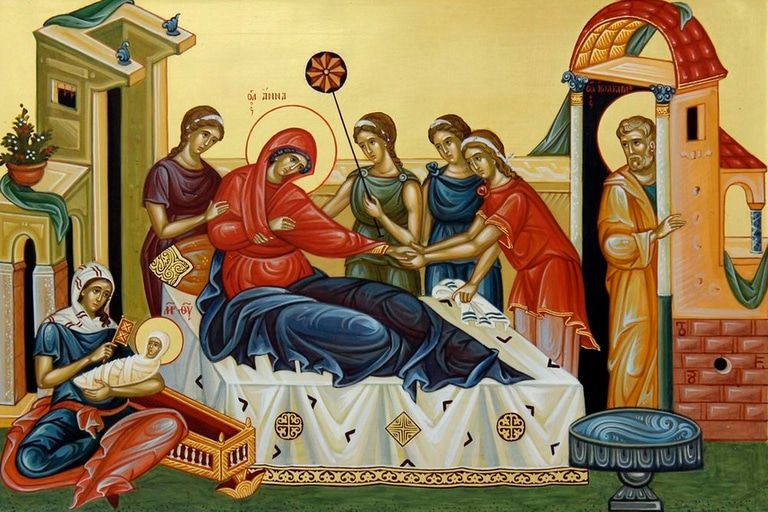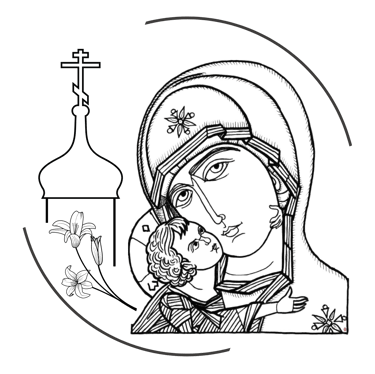Can a Woman Enter the Church During Her Period?
The question of whether a woman may enter a church during her menstrual cycle often sparks debate and misunderstanding. In many Orthodox traditions, there exists a widespread belief that during these days, a woman “should not” enter the church, venerate icons, or participate in services. However, this view does not reflect the spirit of the Gospel nor the official teaching of the Orthodox Church — particularly that of the Church of the Ecumenical Patriarchate.


1. Natural Doesn’t Mean Impure
Orthodox Christian teaching affirms that human beings are created by God, and everything that happens naturally within the body is not sinful or impure. A woman’s menstrual cycle is part of God’s design and, in itself, is no obstacle to prayer or attending church.
The Church Fathers have always stressed that physical conditions do not separate us from God — what truly distances us from Him are things like sin, malice, envy, and pride.
2. What Holy Tradition Says
In the early Church, there were indeed some customs related to physical purity, often influenced by Old Testament ideas of ritual impurity. However, even in the first centuries of Christianity, these views were being re-examined and reinterpreted.
For example, Saint Gregory the Great (6th century) wrote to the priest Augustine saying that a woman during her period may enter the church, pray, and receive Holy Communion — as long as she does so with humility and faith. What matters to God, he emphasized, is the heart, not the body.
This understanding has shaped Orthodox theology ever since, especially within the tradition of the Ecumenical Patriarchate.
3. The Pastoral Approach Today
The Orthodox Church under the Ecumenical Patriarchate — the Mother Church of all Orthodoxy — takes a consistent pastoral and compassionate approach. In all dioceses of the Patriarchate today, women are welcome in church at any time — whether during their period, after childbirth, or at any other moment.
There are no canonical rules that forbid women from entering a church during their menstrual cycle.
The Holy Synod of the Ecumenical Patriarchate has reaffirmed this many times: “The church is where people meet God — and no physical condition should prevent anyone from approaching the source of grace.”
4. What About Easter Services?
This question becomes particularly sensitive around Pascha (Easter). Sadly, some women are told: “Don’t you dare go to Easter services if you’re on your period.” But this is a man-made superstition — not Church teaching.
A woman has every right to attend Paschal services, even if she’s menstruating. In fact, this is the night of the Resurrection — the holiest celebration of our faith and a wellspring of hope for all Christians. No natural bodily condition should ever prevent someone from sharing in the Church’s joy.
5. Holy Communion and Sacred Things
When it comes to receiving Holy Communion, the Church follows the principle of spiritual freedom and pastoral care. If a woman is preparing to receive the Eucharist, lives a spiritual life, and is at peace with others — she is absolutely free to receive the Body and Blood of Christ, regardless of her menstrual cycle.
If she feels physically weak or uneasy, she may — with guidance from her spiritual father — decide to wait. But this should always be her own decision, never something imposed through fear or shame.
There is also no restriction on venerating icons, touching relics, kissing the Epitaphios (burial shroud), or entering the church during Easter or any major feast day.
In Summary: The Church Is God’s House for Everyone
The Orthodox Church does not turn away anyone who comes in faith seeking communion with God. Women are equal to men in dignity, grace, and the calling to salvation. Natural bodily functions can never be a barrier to participation in church life.
“For you are all children of God through faith in Christ Jesus.” (Galatians 3:26)
The Ecumenical Patriarchate affirms: a woman is always welcome in the House of God, at every stage and moment of her life.
The church is not a place of fear or exclusion — it is a space of grace, peace, and mercy.


